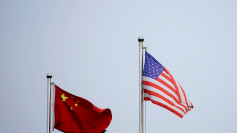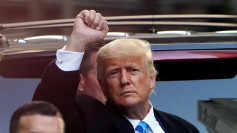A Harvard report released on Tuesday (Sept. 20) highlights the widespread use of "greenwashing" by top companies on social media, including a commercial plane that has been photoshopped to have a shark's tail, hashtags that falsely suggest sustainability, and the tokenistic use of minorities to divert attention and signal virtue.
The report, "Three Shades of Green(washing)," which was unveiled during New York's Climate Week discovered that just one out of every five "green" vehicle advertisements actually show a product for sale, with the remaining advertisements only promoting the brand as green.
The analysis, commissioned by Greenpeace Netherlands, entailed evaluating the content and photos of 2,300 posts by 22 of Europe's top carmakers, fossil fuel manufacturers, and airlines this June and July.
"During this summer of record temperatures and wildfires in Europe, these fossil fuel interests have remained explicitly silent on the topic of climate change, and instead, they engage in what we interpret to be strategic brand positioning," lead author Geoffrey Supran said.
Five out of every 10 postings made by oil, auto, and airline firms focus on sports, fashion, or social issues rather than their main industries.
The survey discovered that two-thirds of businesses portrayed a "green innovation" glow on their operations through social media posts, with autos outpacing airlines and oil and gas corporations in terms of production.
Although some people were already aware of these tendencies, Supran said that the new study's value lay in the application of peer-reviewed social scientific techniques to give additional quantitative weight.
The companies' social media messages stood out in part because they frequently mentioned their sponsorship of charitable causes or sporting events instead of their products.
"In principle those kinds of activities should be applauded. The issue becomes when corporate philanthropy slips into corporate social responsibility washing, things like greenwashing, sportswashing, and wokewashing," Supran said.
A Lufthansa Instagram image in which a plane appears to be a shark swimming in the ocean is an example of greenwashing. The purpose of the post was to draw attention to a coating that is put on an airplane's body and is modeled after shark skin in order to increase airflow and save fuel.
Using the hashtag "SustainableAviationFuel," Air France-KLM and Lufthansa promoted the usage of biofuel on some routes.
These posts conceal the fact that such fuels make up a very small portion of the total fuel used by the industry and that not all experts are yet persuaded that they can power climate-safe air travel, according to the report.






